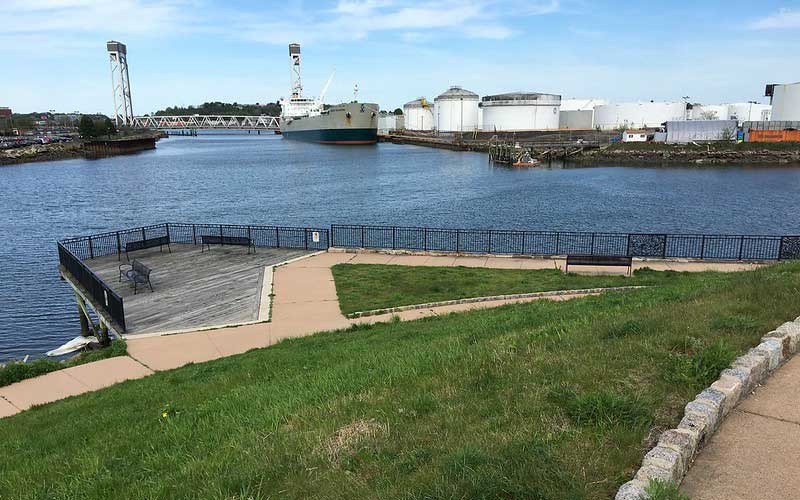
Eversource wants to build a new substation in East Boston's Eagle Hill neighborhood. Local residents – many of whom have limited proficiency in English –oppose the plan, but the State has made it hard for them to take part in the public process by refusing to provide adequate translation services at meetings. Photo: Ed Lyons, CC BY-NA 2.0
February 22, 2021 (BOSTON, MA) – Massachusetts energy officials announced today that they have approved the construction of a controversial East Boston electrical substation that was strongly opposed by the community. Conservation Law Foundation (CLF), GreenRoots, and Lawyers for Civil Rights previously filed a federal complaint under Title VI of the Civil Rights Act of 1964 with multiple federal agencies after officials failed to make meetings accessible to all residents. The groups issued the following statements in response to today’s news.
“Approving the construction of this substation is a slap in the face to the East Boston community,” said CLF staff attorney Erica Kyzmir-McKeon. “State officials did everything they could to silence community input on this project, calling necessary translation services ‘disruptive.’ This project will impact the neighborhood for decades to come and it never should have been approved.”
“The EFSB’s decision, while disappointing, is hardly surprising,” said Roseann Bongiovanni, Executive Director of GreenRoots. “We know that our national regulatory system for our energy sector is dominated by the regulated industry, so why should Massachusetts be any different? It does really expose the hypocrisy of those who talk up climate resiliency and social equity while at the same time continue accepting money from corporations like Eversource and effectively doing their bidding. This is not what democracy looks like; it is what systemic environmental racism looks like. And this is not the end of this fight by a long shot.”
“A defective process will produce an unjust outcome,” said Lauren Sampson, Staff Attorney at Lawyers for Civil Rights. “The EFSB has disregarded the needs of East Boston residents at every turn. Reform is critical to ensuring a Board responsive to and reflective of the communities it purports to serve.”
In their decision, the Energy Facilities Siting Board included an almost meaningless amendment that asks Eversource to negotiate an agreement with the East Boston community to mitigate the impacts of the soon to be constructed substation. However, if an agreement fails to be reached, construction can go forward anyway.
Civil rights complaints against the Executive Office of Energy and Environmental Affairs, Department of Public Utilities, and Energy Facilities Siting Board are still pending with Departments of Interior and Transportation, and a civil rights compliance review of the Executive Office of Energy and Environmental Affairs by US EPA has barely begun.
Experts are available for further comment.
###
